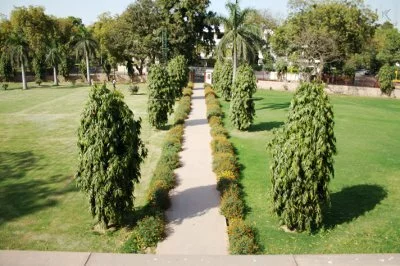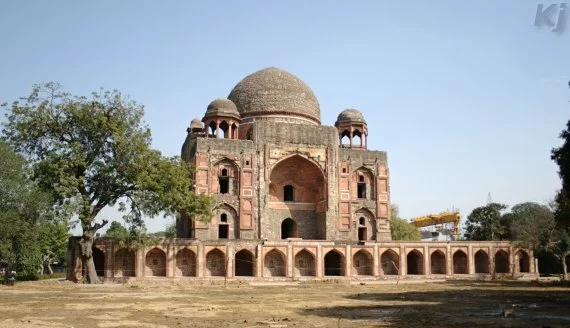Abdul Rahim Khan-i-Khana’s Tomb
kjohri | Mar 07, 2010 | Comments 0
Abdul Rahim Khan-i-Khana
Mirza Abdul Rahim Khan-i-Khana (1556-1627), popularly known as Rahim, was son of Bairam Khan and was one of the Navaratnas, or main ministers, in the court of the great Mughal emperor, Akbar. Abdul Rahim was a learned man with great command over Arabic, Persian, Turkish, Hindi and Sanskrit languages. Abdul Rahim is most famous for his couplets, or dohe in Hindi language, which are timeless words of wisdom in the form of poetry.
Apart from dohe, Abdul Rahim wrote two books on Astrology, Kheta Kautukama and Dwawishd Yogavali. He also translated Babar’s memoirs, Baburnama from Chagatai language to Persian.
Abdul Rahim was an able general and a good administrator. In the year 1573, he accompanied Akbar to Patan, Gujarat for the battle for annexation of the Gujarat Sultanate. In 1576, he was appointed as Vazír of Gujarat for management of the province. Later on, he became Mír 'Arz and Átalíq to Prince Salim. In 1583, the last ruler of Gujarat Sultanate, Muzaffar Shah III, regrouped and regained the throne for a short period. Abdul Rahim defeated him twice, first in the battle of Sarkich, near Ahmadabad and, later on, near Nadot. For these two victories, Akbar made him commander of Five Thousand, Khán Khánán.
Abdul Rahim was a noble, kind-hearted and humble person. While giving charity, his hand would be high, with eyes looking downwards. For, he thought, as he said to the great Tulsidas, “The Giver is someone else, giving day and night. People mistakenly give me credit, so my eyes are looking downwards.” After the final victory at Gujarat, Abdul Rahim gave all his belongings to his soldiers. When the last soldier came, and nothing was apparently left, he gave his inkstand to him.
Abdul Rahim Khan-I-Khana’s Tomb
Abdul Rahim Khan-i-Khana's Tomb
Abdul Rahim Khan-I-Khana’s tomb is located on Mathura Road in Nizamuddin area in New Delhi. It was built by him for his wife in the year 1598. It became his final resting place when he died in 1627.

Lawns at Abdul Rahim Khan-i-Khana's Tomb

Random Quotes: Amazing quotations
Filed Under: Travel
